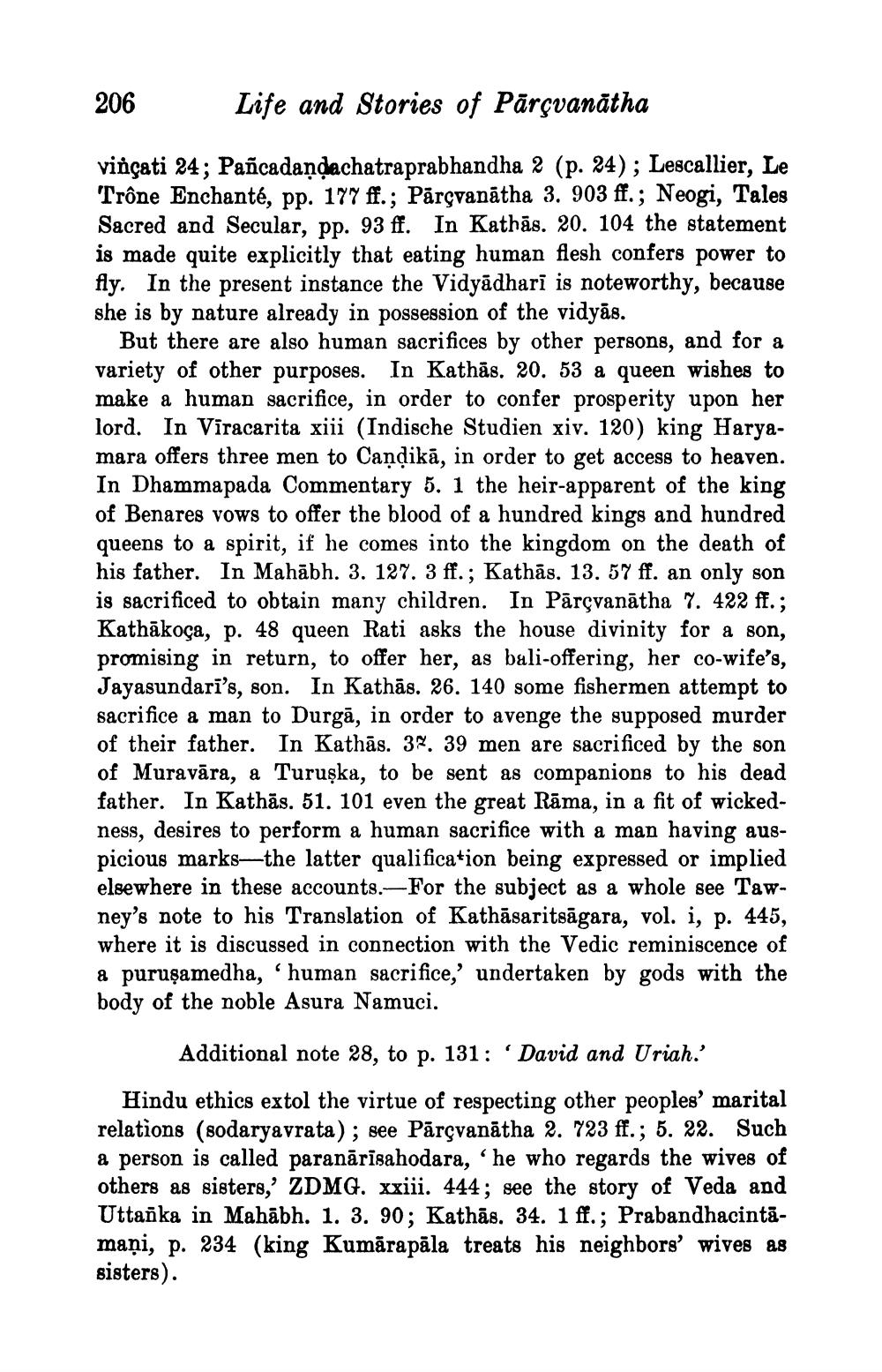________________
206
Life and Stories of Pārçvanātha
vincati 24; Pañcadandachatraprabhandha 2 (p. 24); Lescallier, Le Trône Enchanté, pp. 177 ff.; Pārsvanātha 3. 903 ff.; Neogi, Tales Sacred and Secular, pp. 93 ff. In Kathās. 20. 104 the statement is made quite explicitly that eating human flesh confers power to fly. In the present instance the Vidyādharī is noteworthy, because she is by nature already in possession of the vidyās.
But there are also human sacrifices by other persons, and for a variety of other purposes. In Kathās. 20. 53 a queen wishes to make a human sacrifice, in order to confer prosperity upon her lord. In Viracarita xiii (Indische Studien xiv. 120) king Haryamara offers three men to Caņdikā, in order to get access to heaven. In Dhammapada Commentary 5. 1 the heir-apparent of the king of Benares vows to offer the blood of a hundred kings and hundred queens to a spirit, if he comes into the kingdom on the death of his father. In Mahābh. 3. 127. 3 ff.; Kathās. 13. 57 ff. an only son is sacrificed to obtain many children. In Pārçvanātha 7. 422 ff.; Kathākoça, p. 48 queen Rati asks the house divinity for a son, promising in return, to offer her, as bali-offering, her co-wife's, Jayasundari's, son. In Kathās. 26. 140 some fishermen attempt to sacrifice a man to Durgā, in order to avenge the supposed murder of their father. In Kathās. 37. 39 men are sacrificed by the son of Muravāra, a Turuska, to be sent as companions to his dead father. In Kathās. 51. 101 even the great Rāma, in a fit of wickedness, desires to perform a human sacrifice with a man having auspicious marks—the latter qualification being expressed or implied elsewhere in these accounts.—For the subject as a whole see Tawney's note to his Translation of Kathāsaritsāgara, vol. i, p. 445, where it is discussed in connection with the Vedic reminiscence of a puruşamedha, "human sacrifice,' undertaken by gods with the body of the noble Asura Namuci.
Additional note 28, to p. 131: 'David and Uriah.
Hindu ethics extol the virtue of respecting other peoples' marital relations (sodaryavrata); see Pārçvanātha 2. 723 ff.; 5. 22. Such a person is called paranārīsahodara, ‘he who regards the wives of others as sisters,' ZDMG. xxiii. 444; see the story of Veda and Uttañka in Mahābh. 1. 3. 90; Kathās. 34. 1 ff.; Prabandhacintămaņi, p. 234 (king Kumărapăla treats his neighbors' wives as sisters).




